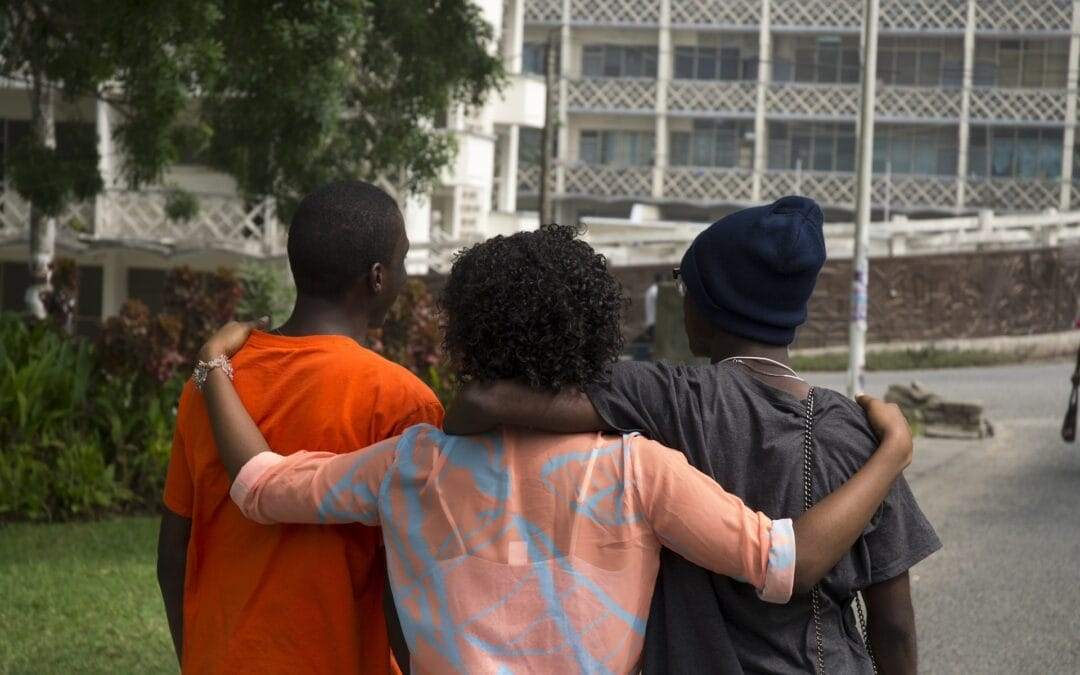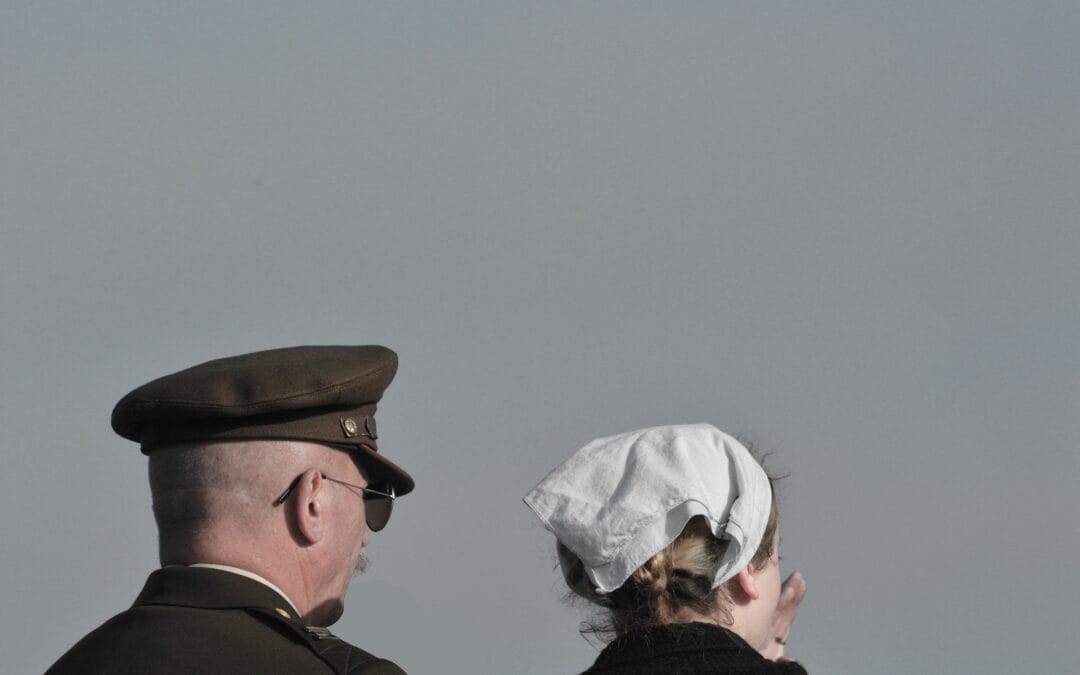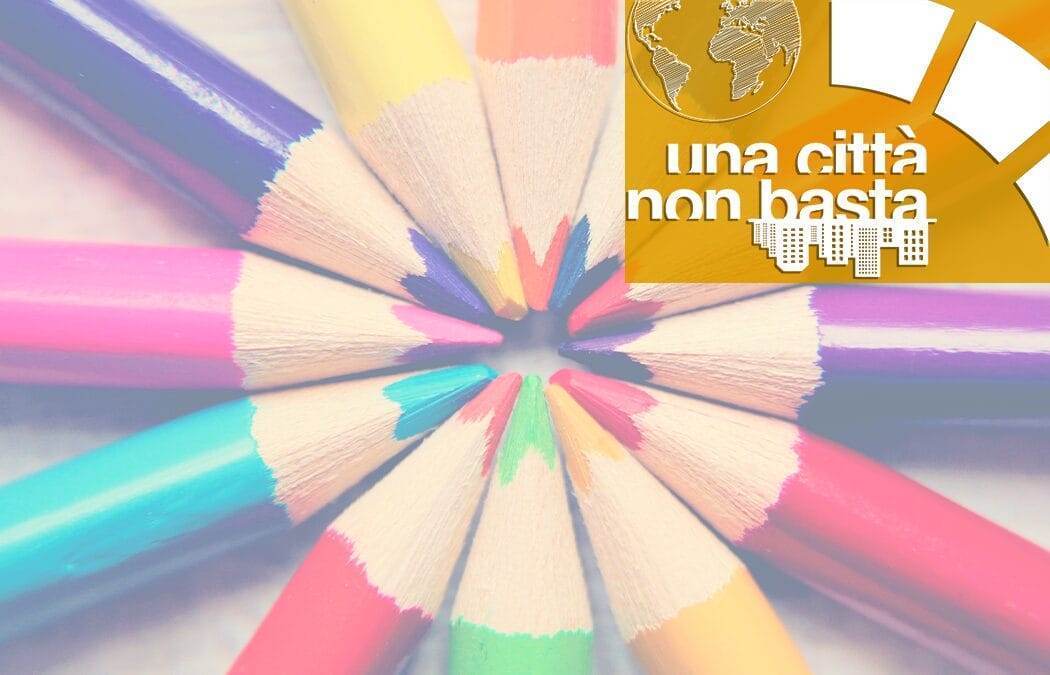We are not alone
We are not alone
We are not alone

This sentence is taken from the story of the Annunciation. The angel Gabriel appears to Mary of Nazareth and makes known God’s plans for her: she will conceive and give birth to a son, Jesus, who ‘will be great and will be called the Son of the Most High.’ [1] The episode is in continuity with other events in the Old Testament whereby barren or very old women gave birth to children who were to play an important role in salvation history. Here, Mary, while wishing to fully and freely adhere to the call to become the mother of the Messiah, wonders how this will happen because she is a virgin. Gabriel assures her that it will not come about through the work of man: ‘The Holy Spirit will come upon you and the power of the Most High will overshadow you.’ [2] And he adds: ‘For nothing will be impossible with God.’ [3]
Such reassurance, which means that no declaration or promise made by God will remain unfulfilled – because nothing is impossible to him – can also be expressed in this way: nothing is impossible with God. In fact, the nuance of the Greek text ‘with, or near, or together with God’ highlights his closeness to men and women. In fact, when human beings are together with God and freely adhere to him, nothing is impossible.
«For nothing will be impossible with God».
How can we put this word of life into practice? We can do so by being confident in the belief that God can act even within and beyond our limitations and weaknesses and during the darkest periods of our lives.
This was the experience of Dietrich Bonhoeffer. Whilst in prison before being tortured, he wrote: ‘We must immerse ourselves again and again in the living, speaking, acting, suffering and dying of Jesus in order to recognise what God promises and fulfils. It is certain […] that for us nothing impossible exists anymore, because nothing impossible exists for God; […] it is certain that we must not expect anything and yet we can ask everything; it is certain that in suffering our joy is hidden and in death our life… To all this God has said ‘yes’ and ‘amen’ in Christ. This ‘yes’ and this ‘amen’ are the solid ground on which we stand.’ [4].
«For nothing will be impossible with God».
In trying to overcome the apparent ‘impossibility’ of short-comings and in striving to reach the ‘possibility’ of a sound and consistent life, the community dimension plays a decisive role. This developed when, as a group, the disciples lived Jesus’ new commandment and allowed the power of the risen Lord to dwell within them, both collectively and individually. In 1948, Chiara Lubich wrote to a group of young members of religious communities: ‘Let’s go ahead, not relying on our own strength which is petty and weak but with the omnipotence of unity. I have seen and touched with my own hands that God among us does the impossible: he performs miracles! If we are faithful to our task […] the world will see unity and with it the fullness of the Kingdom of God.’[5]
Years ago, when I was in Africa, I often met young people who wanted to live as Christians and who told me of the many difficulties, they faced each day in trying to be faithful to the commitments of faith and the teachings of the Gospel. We would talk about this for hours and, in the end, we always came to the same conclusion: ‘It is impossible if we are alone but not if we are together.’
Jesus himself guarantees this when he promises: ‘Where two or three are gathered in my name (in my love), there am I in the midst of them.’ [6] And with him all things are possible.
Edited by Augusto Parody Reyes & the Word of Life team
Photo: ©Sammmie – Pixabay
[1]Lc 1, 32.
[2] Ibid, 35.
[3] Ibid, 37.
[4] D. Bonhoeffer, German Lutheran Pastor, protagonist in resistance against Nazism
[5] C. Lubich, “Letters of the Early Times”. viCf Mt. 18:20.
[6] Cf. Mt 18, 20.

We may feel frightened when life presents us with challenging and unexpected choices but, nonetheless, it is then that our values and the desire to live with integrity clearly emerge.
It’s not always easy. When the answer to a situation requires our free and personal choice, we may feel that we are taking a difficult gamble, almost a leap in the dark, and we need the strength to go beyond our own limits.
Where can we find the strength to do this? For some people it comes from faith in the supernatural and belief in a personal God who loves us and accompanies us. For everyone it can come from the closeness of friends, of “travel companions” who support us, trust us and who we feel are near as we journey through life. They bring out the best in us and help us overcome the apparent “impossibility” of our insufficiencies to achieve the “possible” of a coherent way of life.
This happens as a consequence of relationships that are reciprocal and impacts upon us as members of a community. As Chiara Lubich said in 1948, using language typical of the time: “Let’s go ahead! Not with our strength, petty and weak as it may be, but with the omnipotence of unity. If we remain faithful to our commitment […] the world will see unity.”[1]
Going beyond our limits opens us to new opportunities and experiences that might otherwise seem out of our reach, allowing us to believe and witness that nothing we hope for is impossible.
But is it possible to believe “that everything is possible” in the face of the absurdity of Evil? This is the great question that humanity continues toask today as it has always done in the past.The absence of response unites everyone, believers and non-believers, as they search for the answeron a journey that can only be undertaken together. Because if “Evil” remains a mystery, the force of “Good” is equally powerful. There is no answer, but a way of understanding.
Edith Bruck recalled this in a recent interview.ii She was deported to Auschwitz at the age of 13 but still today, in her nineties, is a real witness of peace. When the war ended, she and her sister were faced with a dramatic dilemma. “Five Hungarian fascists who had supported the Nazis begged us to help them return home secretly and we did so by helping them on their journey. We shared bread and chocolate with them. It was one of the most intense moments I had ever experienced spiritually. I was treating someone who could have killed my father as a friend.” The decision was not easy and she argued a lot with her sister, but they did it because they thought that perhaps, this way, these people would never mistreat a Jew again. [2]
THE IDEA OF THE MONTH is currently produced by the Focolare Movement’s “Centre for Dialogue with People of Non religious Beliefs”. It is an initiative that began in 2014 in Uruguay to share with non-believing friends the values of the Word of Life, i.e. the phrase from Scripture that members of the Movement strive to put into practice in their daily lives. Currently, THE IDEA OF THE MONTH is translated into 12 languages and distributed in more than 25 countries, with adaptations of the text according to different cultural sensitivities. dialogue4unity.focolare.org
Photo: © Pixabay
[1] Chiara Lubich, “Letters of the Early Times”.
[2] Marisol Rojas Cadena SER- article on E. Bruck 26/01/2024
Know how to wait

“The competition has been and remains a unique way to introduce Chiara Lubich, founder of the Focolare Movement, to younger generations and to an audience that engages with her work on a cultural level,” says Giuliano Ruzzier, a teacher and collaborator of the Chiara Lubich Centre.
Promoted by the Ministry of Education and Merit, New Humanity and the Historical Museum Foundation of Trentino, this year’s theme is peace. Participants are encouraged to explore the meaning of peace in light of Chiara Lubich’s contributions. Ruzzier explains, “From her extensive legacy, particularly where she explicitly addressed this theme, we have identified four perspectives from which to reflect on peace.”
These perspectives include constructive dialogue among people of different religions and cultures, overcoming economic disparities, fostering personal commitment to fraternity through relationships of proximity and spreading a culture of peace. Prof. Giuseppe Ruzzier continues, “Chiara Lubich viewed humanity as a whole. She is well-known for her call to ‘love others’ countries as our own. Her emphasis on everyday relationships is particularly distinctive. As she said, our days can be filled with practical, humble, intelligent acts of service, expressions of our love. Every little gesture has an effect on society.”
The contest is open to primary, middle and high school students. “As in past years, we especially hope for broad participation from Italian schools abroad, given the clear international scope of this year’s theme.”
When asked how he would encourage his colleagues to promote this initiative, Ruzzier replies: “This contest offers students the chance to reflect independently and creatively on a highly relevant and important topic like peace. It also provides an opportunity to engage with the significant thoughts of a woman who profoundly shaped and experienced the 20th century and expressed herself in many ways.”
The deadline for submissions is 31st March, 2025. For the contest rules and additional information, visit:
https://chiaralubich.org/concorso-per-le-scuole-2024-25/
Carlos Mana
Be silent before each person
Do good
Look kindly on all

Kindness
This morning, while shopping at the supermarket, I passed by a large trolley where a shop assistant was piling up boxes. I noticed two of them were on the ground.
Fearing that I had inadvertently dropped them, I apologised, picked up the boxes and placed them on the trolley.
The shop assistant thanked me and said not to worry, then called after me: ‘Kindness is rare!’. Another person who was passing by just at that moment confirmed: “That’s very true!” whereupon the shop assistant, by way of explanation, told her what had happened.
As for me, I was happy, not least because this little episode reminded me of a phrase I had heard some time ago which had struck me. It spoke about “sowing kindness”. It felt like a ‘caress’ from God.
G.S. – Italy (*)
Healing relationships
I have a brother, a Catholic Christian, who married a German woman from the Evangelical Church. When they settled in Italy, the relationship between my mother and sister-in-law was not easy, even though she was not against their children being educated in the Catholic Church. As for me, I tried to be a ‘mediator’ between her and my mother. My sister-in-law also suffered because of this misunderstanding, which was however healed shortly before our mother died. For some time now, I have been sharing the ‘Thought for the Day’ with her via Whatsapp which helps us to live Gospel-based love on a daily basis. One day the thought invited us to ‘be merciful’, with this short commentary sentence: “Mercy is a love that knows how to welcome every neighbour, especially the poorest and neediest. A love that does not measure, is abundant, universal, concrete”. Her response was immediate: ‘If I have made you feel bad in certain circumstances over the past years, please forgive me”. Astonished, I replied in turn: “I too apologise”. And she: “I don’t remember any incident for which need to apologise…’.
C. – Italy (*)
Called and sent
Someone very dear to me asked me to write something about my experience as a teacher for an acquaintance of hers from another country who was doing a project on values education.
I realised that it was an opportunity to transform into a testimony and ‘proclamation’ what, in some ways, has been my personal response to the ‘call’ to live according to the teachings of the Gospel as a teacher and as a mother.
The piece took many hours of writing, deleting, correcting, rewriting, remembering aspects that I could add, deleting others that seemed irrelevant and, above all, filtering each word with love. I tried to put myself in the place of the person I was writing for, because even though I did not know her, I could love Jesus in her.
I sent it to my friend, aware that it might not be exactly what she needed, and so was ready to change everything.
To my surprise, she replied: “I have already sent your letter. I really liked it”. No doubt it was not the writing itself that was liked, but the work that God had done in me which could be a little light for others by being shared.
And, of course, the other things I had to do in those days were easily taken care of, as there had been some changes in the rota that left me with more free time.
C.M. – Argentina
Edited by Carlos Mana
Photo © StockSnap-Pixabay
(*) From ‘The Gospel of the Day’ November-December, Città Nuova, Rome 2024.
Revive hope